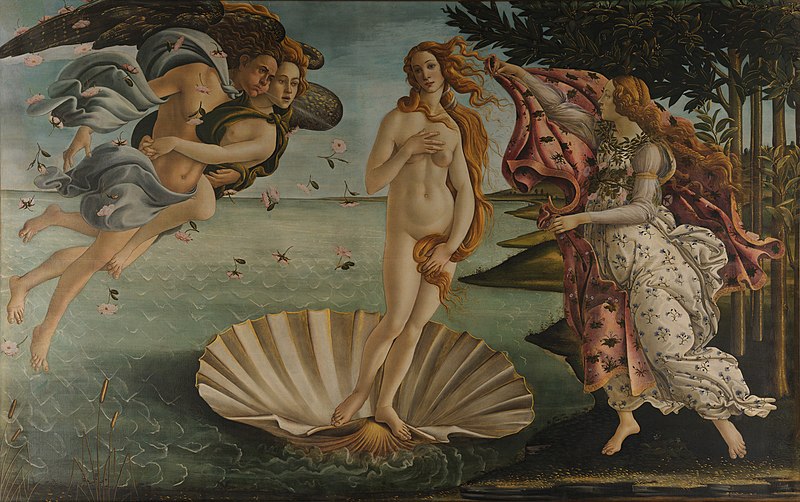 |
| Book Cover |
When this book first came out in 2003, I was drawn to it because of the title. It brought me back to my College days, when one of my favorite professors was talking about a Botticelli painting of the same title. I did read the synopsis at the back of the book and even though it piqued my interest, not just my curiosity, I somehow ended up buying other books.
 |
| Sandro Botticelli's Birth of Venus |
Fast-forward to 2011, at a time that I frequent most Booksale branches and this book keeps on popping up. I say to myself, "Hold on! What's the universe trying to tell me?" Yes, I'm kind of weird like that. I always think that the universe is trying to communicate to me through the everyday goings on, people, objects, animals, plants, and pretty much anything that I happen to encounter.
You could pretty much come to the conclusion that I did buy the book.
When I started reading it, my thought bubble was "Damn! Why didn't I read this sooner." It is one of the best books I've ever read. The writing was impeccable. The story's got everything; coming of age, love and romance, mystery, crime, suspense and thriller, women empowerment, politics, art, passion, danger, choice.
The story revolves around a young, sassy, Florentine girl named Allesandra Cecchi who dreams of becoming an artist. She belongs to a merchant family and her father was a well respected cloth merchant and political figure. Now, the story is set at Florence, Italy during the 15th century. You have to understand that, at this particular time, women are still regarded as property. Unmarried ones belong to their fathers and married ones belong to their husbands. Women are expected to follow the bidding of their father or husband. Women's opinions should reflect that of their father or husband. In short, having a personal opinion was publicly frowned at and is a definite no-no. So much for freedom.
It's also safe to say, that at this particular time, women are not supposed to have "careers". Allesandra should forget about being a well-known artist because it's not going to happen. Besides, women are not even allowed to be an artist's apprentice. Ergo, Allesandra would never have the chance to be trained by an artist.
The story unfolds when Allesandra's father commissions and brings home an artist to paint the murals of the family chapel. Allesandra was drawn to the painter. In her head, she knew the painter could teach her to paint. Little does she know that she's falling in love with the painter; and vice versa.
15th Century Florence was experiencing a lot of crimes. The period can be pretty much described as politically and morally turbulent. Art and expression is rising. Along with it, sodomy, sexual abandon, murder are also rising. Savonarola, a well-known priest, preaches that the moral decline was caused by art leading people away from God. In his opinion, the only way to save man was to destroy art. A view, that Allesandra opposes. You could just imagine the inner conflict this is causing our protagonist. It made me stop and think, "What would I have done, if I were Allesandra?" Do I pursue my passion? Or do I follow my trusted Church? Somehow, this question still applies today. Don't you think?
My rating for this book:

I love this book and I can't wait to read more of Sarah Dunant's work.

This is one of my fave books of all time :D I love your blog. New Follower here. Drop by our site if you have time-TheUnseelieNerd
ReplyDeleteFilipina here :D
http://bookwhales.blogspot.com/
Hi, I'm actually following you already and I love your site too.
DeleteJust like you, The Birth of Venus is also one of my favorite books.
Oh... I added you as a friend in Goodreads too.